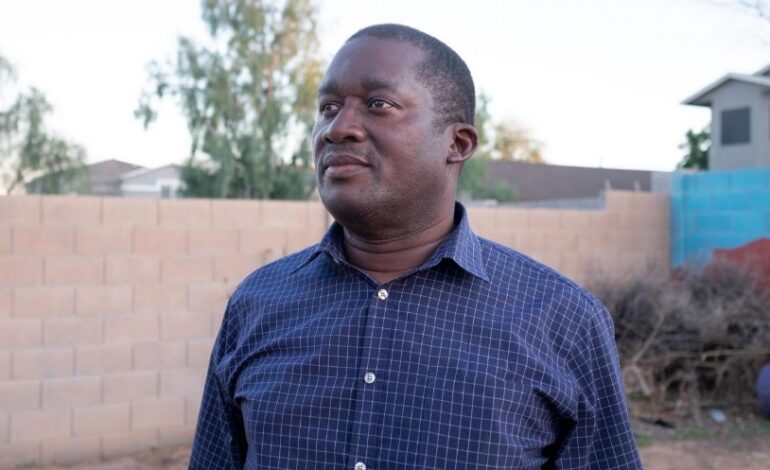
Avellon Williams
HAITI – High school math teacher Rodney Montreuil stays busy all the time. After work and during spring break, he helps Haitian families resettle in Phoenix.
“I’m going to see a couple of clients today,” he said. “The First is a couple, they arrived in October.” The couple was one among thousands of Haitians who had gathered under a bridge in Del Rio, Texas, last year to seek refugee status.
Haiti has suffered disaster after disaster in recent months: A 7.2 magnitude earthquake hit just outside Port-au-Prince in August and Haitian President Jovenel Moise was assassinated one month earlier.
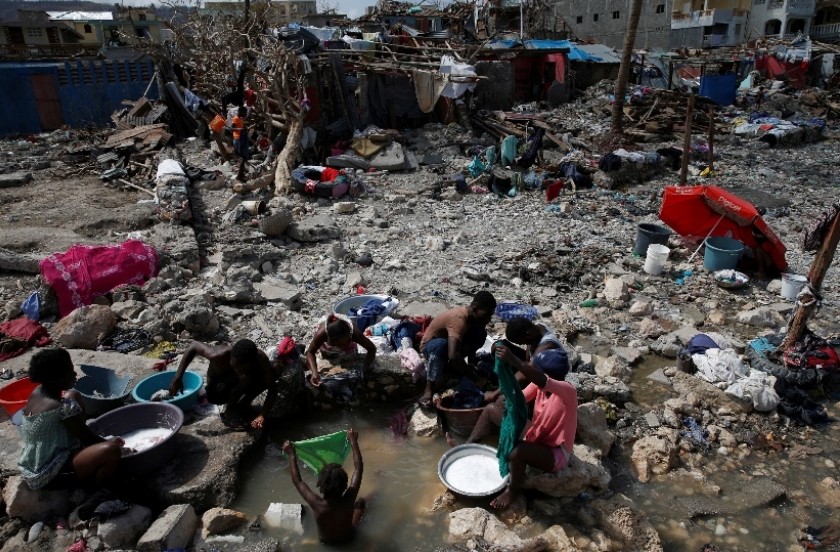
Originally from Haiti, Montreuil has lived in Phoenix, US for the past two decades. His daily tasks range from transferring money to finding a job to helping Haitian newly arrived immigrants. There is always someone on the phone.
There have been thousands of asylum seekers turned away from the US in the past few years under Title 42, a pandemic-era protocol that permits border officers to turn away migrants and asylum-seekers on public health grounds.
Having been implemented by the Trump administration two years ago, it marked a significant anniversary last weekend.
The Biden administration officially ended the policy for unaccompanied children earlier this month. However, the policy remains in place for both families and adults traveling alone.
Increasing pressure is now mounting on the administration to repeal the protocol altogether, especially for Haitians.

According to advocacy group Witness at the Border, which tracks removal flights, more than 20,000 people have been removed from the US during President Joe Biden’s tenure alone.
Many people are being sent back to countries they haven’t been to in years, according to Montreuil. As a young man in Port-au-Prince, he worked as an intern with the Ministry of Foreign Affairs and eventually landed in the National Defense Ministry.
In the early ’90s, his mother warned him that he was likely to die while doing his job. My mother used to say, “Man, I would like to die before I got a call from the police that they found a body in the streets,” that sounded so powerful … she used to say it all the time,” he said.
From Phoenix, he watched as yet another outbreak of civil unrest ravage his country a few years ago. From there, he knew more Haitians would soon set out for the United States.
“I woke up one day, and I’m like, does anybody care … care about anything bad that was happening to our Haitian brothers and sisters?” he said.
He established an organization in 2016 called the Haitian American Center for Social Economic Development. This project focuses on helping people arrive and on building up the Haitian community in Arizona.
A young mother staying at a shelter in west Phoenix, Dieula Sainvil, is one of the newcomers Montreuil met through his organization.
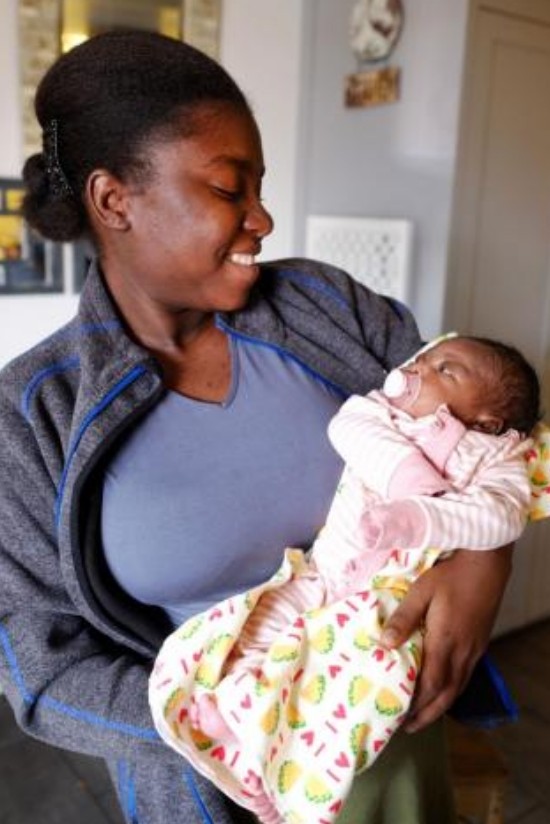
Montreuil translated for Sainvil, 27, who just gave birth to a baby girl in Phoenix last month. In 2019, her father was killed by gang members. As a result, she decided to leave Haiti. “I am a daughter, and most of the time, sons have a tendency to seek revenge for their relatives, but I didn’t see it that way,” she said in Creole. “I immediately envisioned getting out of the country.”
Sainvil said she went to Brazil, then Chile. Last December, she and her husband reached the border between the United States and Mexico. Her husband has family in Indianapolis, and they had planned to travel there. Sainvil, however, claimed that they got separated during immigration detention in Texas.
Sainvil was released earlier this year before giving birth in February. Her husband was released a couple of days ago, but she’s still unsure if he’ll be sent back to Haiti, or if she will. “Life is pretty tough for my family in Haiti,” she said. “Most of them take a chance and venture into the Dominican Republic to look for jobs, and sometimes, they face serious difficulties or maybe death.” Each week, Montreuil attempts to address questions like that on his radio program, Tikoze, which means “let’s chat” in Creole.
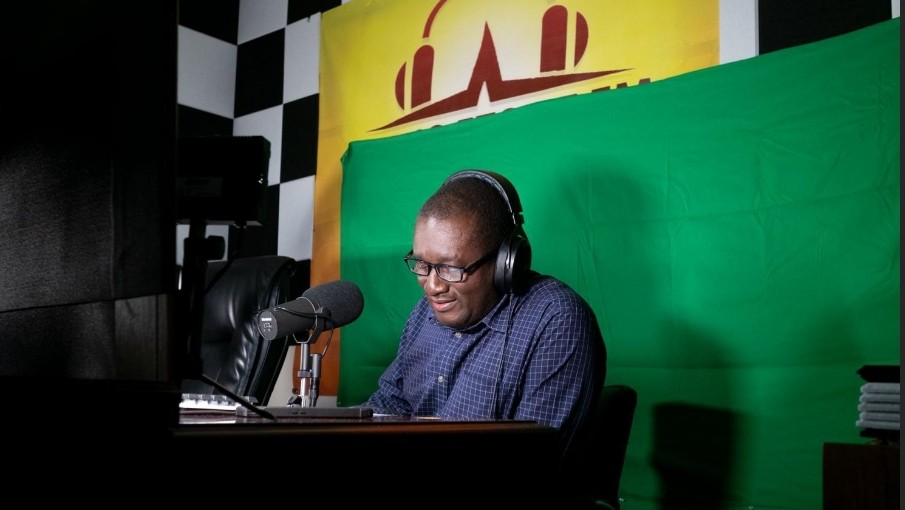
Image: /AR-KJZZ/
“This radio show informs, educates and entertains the Haitian community, wherever you are,” he said. Among the topics he covers are immigration issues, filing taxes in the US, and what to expect at the border.
“The truth of the matter is that it’s no secret that Black people have been treated differently than any other ethnicities,” he said. “We happen to be Haitians and Black, so, that’s a fact.”
Yet, Montreuil emphasized the importance of people knowing what they can achieve. In fact, this Internet radio station is run by another Haitian, Josue Philistin. From their living room outside Phoenix, they broadcast to listeners all over the world. “Brazil, Chile, Haiti,” Philistin said in Creole. “Basically, anywhere where there’s internet, people can listen.”
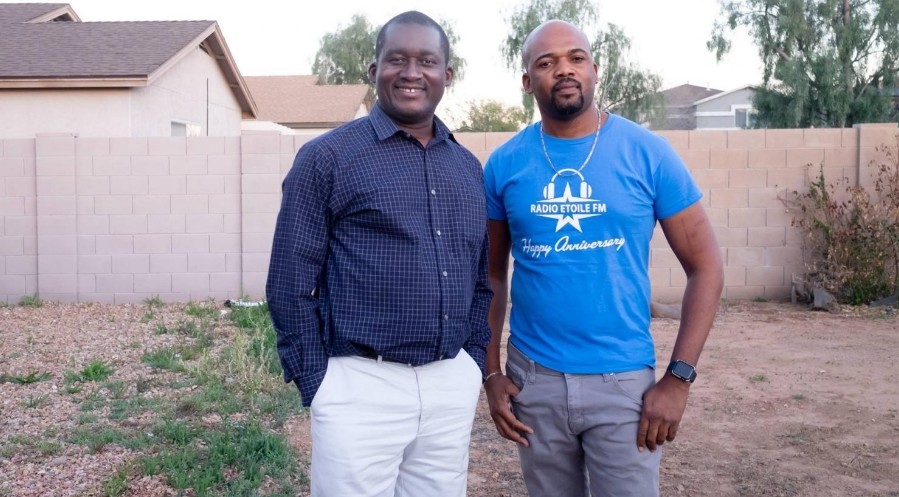
Image: /AR-KJZZ/
The first-person Montreuil sponsored to get out of immigration detention in Eloy, Arizona back in 2016 was Philippe. In Phoenix, he lived with Montreuil for a while and won an asylum case a few years ago. Having spent more than seven months in jail, he is now about to buy a house not far from where he was detained.
“Josue symbolizes what I hope my job significance will be. I mean Josue is my hero, seriously,” Montreuil said.
Rodney Montreuil
According to Montreuill, he is aware that he cannot solve all the problems Haitians are facing today. However, he hopes to provide clarity, and to offer a helping hand, whether in person or via the air.





Recent Comments